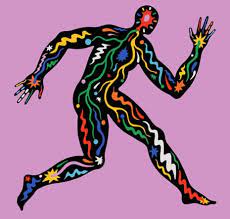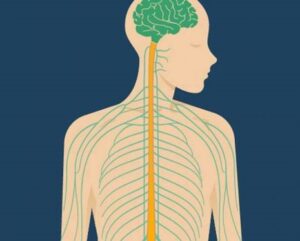 You might have heard the expression “What happens in Vegas stays in Vegas” (as in Las Vegas). You might have heard the expression “What happens in Vegas stays in Vegas” (as in Las Vegas).
However, this doesn’t apply to the vagus nerve in our bodies. What happens with that nerve affects our health and the health of our organs.
I’ve been reading about the vagus nerve and it’s fascinating. If you want to stop gambling with your health, place your bets on your vagus nerve.
In this article*, the vagus nerve is described as “one of 12 cranial nerves. Cranial means nerves that start directly from the cranium, or brain, and not the spinal cord.
It is the longest cranial nerve, emerging from the brain stem and extends down the neck into the chest and abdomen.
It is named after the Latin word for “wanderer”, because it wanders like a vagabond, sending out nerve fibers into different body parts: the digestive system, liver, spleen, pancreas, heart, and lungs.”
You could call the vagus nerve our body’s ‘chill out’ button.
 The wandering vagus nerve It is our main nerve affecting the ‘rest and digest’ system, which counterbalances stress and our ‘flight, fight or freeze’ system. As such, it has an essential role in keeping us in balance and healthy by:
- Sending signals between the brain and the gut
- Aiding digestion
- Regulating the immune system and reducing inflammation
- Controlling the heart rate and blood pressure
- Helping to modulate sleep and wakefulness
- Assisting with speech and swallowing
When the vagus nerve doesn’t work properly (referred to by medics as having a low vagal tone) this is can lead to or aggravate many disorders, such as
- Irritable bowel syndrome
- Type two diabetes
- Rheumatoid arthritis
- Other autoimmune disorders
- Chronic inflammation
- High blood pressure
- Sleep disorders
- Mood and anxiety symptoms
- PTSD
So, the question arises – can we improve vagal tone (vagus nerve health)? The answer is “Yes”! As well as following advice from your doctor, general therapies and lifestyle changes such as diet and exercise, we can also stimulate our vagus nerve to improve its tone.
You know what I’m going to say next, don’t you?? Yep, tai chi and qigong can help because they involve stretching, breathing exercises and meditation – all of which stimulate better vagal tone. Yoga has the same effect.
Massaging certain parts of your body can help and, believe it or not, humming can also assist as it vibrates in your mouth, jaw, throat and chest all of which support good vagal tone.
However, if you think you may have a problem with your vagus nerve, it is crucial to first see your doctor. They can diagnose the cause and recommend the best course of treatment.
Find out more:
|